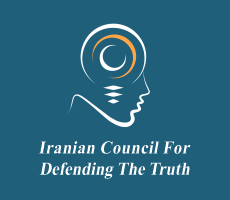Authors: Walter K. Andersen and Shridhar D. Damle
Publisher: Hurst & Company, London
The book under review Messengers of Hindu Nationalism: How the RSS Reshaped India (2019) by Walter K. Andersen and Shridhar D. Damle is a remarkable piece of literature that traces the genesis of the Rashtriya Swayamsevak Sangh (RSS) a Hindu Nationalist organization regarded to be the parent of India’s ruling Bharatiya Janata Party BJP. The book explores that RSS was founded in 1925 by Dr Keshav Baliram Hedgewar who believed that “the deep social divisions among the Hindus of India were responsible for what he considered a thousand years of foreign domination on the subcontinent”.
The book elegantly analyses affiliates of RSS under Narendra Modi Regime are systematically organized, party’s ideological godfather, the Hindu nationalist (RSS), held a widely reported ‘coordination’ meeting with some two dozen of its affiliates in India. In 2017, there were about 6000 pracharaks and they played a significant role in the parivar or family. They worked in various groups that included India’s ruling party, BJP, the Akhil Bharatiya Vidyarthi Parishad (ABVP), its largest university student group, and its largest trade union, the Bharatiya Mazdoor Sangh (BMS), as well as among journalists, farmers, health workers, entrepreneurs, elementary and high school teachers and so on.
The book sheds light on the consolidation of RSS in India and maintains that since the 1990s the socio-economic changes have both transformed the RSS and led to its increased popularity in the Indian social milieu. “The RSS since the early 1990s has grown into one of the world’s largest non-government associations, with an estimated 1.5–2 million regular participants in its nearly 57,000 local daily meetings (known as shakhas), 14,000 weekly shakhas and 7000 monthly shakhas, taking place across 36,293 different locations nationwide as of 2016. There are some 6 million alumni and affiliate volunteers”. The number of daily shakhas accelerated at record rate in 2015 and 2016, intensifying from 51,332 daily in March 2015 to nearly 57,000 a year later.
The book highlights the contribution of Madhukar D. Deoras (1973–94), one of the earliest pracharaks trained by Hedgewar. Deoras articulates that ‘two all-Bharat and 45–48 provincial karyakartas shall exclusively bear the responsibility of seva work’. Deoras systemized the RSS’s service activities. He put the RSS on a much more intense activist path in such varied areas as education, tribal uplift, rural development and social service NGOs. To bear in mind, Deoras in 1989 also established Sewa International, the international charity wing of RSS that promotes Hindutva ideology abroad.
At the time of Indian independence in 1947, the RSS was wary of Chinese expansionism into territories. In order to counter China, the BJP government, currently, is content to be a part of the Quadrilateral Security Dialogue Quad, a group of four countries such as the US, India, Japan and Australia. India views Quad as a multilateral security dialogue to secure “a peaceful maritime zone from Asia to Africa”.
The book discovers remarkable points saying that India of the twenty-first century is radically different from India of the past and that has had an impact on the RSS, on both its policy orientation and membership. India currently has over 1.1 billion cell phone subscribers. The Internet and Mobile Association of India (IAMAI), estimates that almost 500 million will access the Internet from their mobile phones by mid-2018.These organizations conceive of themselves as the messengers of dharma, the Hindu ideal of duty and righteous conduct that will promote RSS ideology in every nook and corner of the country.
The RSS tries to cajole minority groups in a bid to join the Hindu nationalist group. Manmohan Vaidya, the former RSS spokesperson, stated that “the organization was not interested in enforcing dietary practices and that those who consume beef can become its members”. Sunil Deodhar, RSS pracharak and the BJP’s strategist for the 2018 Assembly elections campaign declared that “the BJP has no intention of imposing a cow-slaughter ban in states where beef consumption is not a cultural taboo”.
RSS writers argue that change ought to come predominantly from below and that most important transitions are affected by private rather than public endeavor. Dattatreya Hosabale, the RSS’s joint general secretary, asserted, ‘We [the RSS] would want the BJP to win all the state elections because only then can significant social, political and cultural changes take place in this country . . . The 2014 election victory should be seen as the starting point of a long term mission.’ RSS writers maintain that “they have a vision for India that operates contrary to such Western-inspired models as capitalism and communism—such systems only serve, they say, to weaken respect for traditional cultural values, and thus undermine the very integrity of the Indian state”.
In the context of ethnonationalism, the RSS’s goal is supposed to be promoting a harmonious society that should be assimilationist but also negates both the adoption of Western cultural values and special cultural privileges for minorities. It asserts that “one can practice any religion; as long as worship is done within the framework of cultural Hinduism and with respect for national traditions, broad categories that we will show involve a self-conscious effort to assimilate aspects of local traditions into the larger framework of Hindu culture”. The RSS, since the late 1970s, has opened its doors to Muslim and Christian participants in the shakhas and within the affiliates but endorses them only on its terms.
The parivar in the 1990s started to integrate what Christophe Jaffrelot refers to as ‘social engineering’ (positive discrimination for non–high-caste Hindus) into their earlier model of ‘sanskritization’ (that is, the emulation of high-caste behaviour) aimed at achieving the social assimilation of all Hindu groups.
RSS senior leadership widened the definition of Hindu to include most Muslims and Christians and (and others as well) as long as they subscribe to what Upadhyaya in Integral Humanism described as the ‘national soul’. Interestingly, Deoras in 1977opened RSS shakhas to Muslims as well as other non-Hindus to change the psychology of Muslims. There are even few Muslims in the RSS who have gone through the three-year training programme. Meanwhile, Golwalkar in 1939 wrote that ‘The non-Hindu peoples in Hindustan must either adopt the Hindu culture and language, must learn to respect and hold in reverence Hindu religion’ if they were to ‘stay in this country.
The RSS also wants to bring Muslims closer to the national mainstream, political stability and to help BJP to have political support among Muslims which have a 14% population. It is pertinent to mention here that RSS opened membership to Muslims and Christians in 1979. The proliferation of RSS affiliates penetrated all parts of society and the political successes of the BJP all over the country. RSS Chief Mohan Bhagwat in a speech in 2017 stated that “our existence is based on Sanskriti [culture] and people which is unique and entirely different from the union-state concept rooted in power.”He further states that, ‘Our Sanskriti . . . is our collective bonding spirit.’ Bhagwat has often reiterated that all Indians are culturally Hindu, which is likely to remain the RSS’s stand on nationalism. The BJP in 2014 won 24 per cent of the popular Dalit vote (vs 18.5 per cent for the Congress) and 37.5 per cent of the tribal vote (vs 28.3 per cent for the Congress).
The cunning strategy of RSS appears to be working; the BJP in 2014 won 24 per cent of the popular Dalit vote (vs 18.5 per cent for Congress) and 37.5 per cent of the tribal vote (vs 28.3 per cent for the Congress). In 2014 election campaign, Modi appealed to a pan-Hindu audience by stating that, ‘The next decade will belong to the Dalits and the backwards’ while highlighting his lower-caste origins.
However, there are numerous unresolved problems that present long-term political problems for Modi and the BJP. The most serious problem is the economic challenge, the government inability to create jobs to employ the hundreds of thousands entering the job market each month, agrarian distress, flagging exports and a lower than expected investment level. The book also highlights the dissatisfaction of RSS members like BMS and SJM claiming that the government’s two signature policy moves (demonetization aimed at curbing corruption and the GST designed to integrate the economy) are hindering the economic growth. Bhagwat reminds the government that, “employment, that is, work for every hand and enough remuneration for sustainable livelihood is a major consideration for us”. On the other hand, the sangh parivar are likely to face some serious challenges that raise the following several key questions.
- How will they handle the tensions between pervasive Hindu caste identities and the non-caste orientation of Hindutva?
- How will they adjust themselves to identities outside the traditional Hindu caste hierarchy?
- How will they reconcile the interests of the rapidly growing urban middle class (for whom development that carries with it jobs and a better lifestyle is a high priority) with those of the poor farmers in the villages (who demand infrastructures like healthcare, water, connectivity to markets and skill-based education)?
RSS leaders have already recognized that the traditional caste hierarchy is a challenge to the desired goal of Hindutva, but they are also clueless about how to handle regional and class identities among Hindus which pose questions not only of culture but also of state-Centre relations.
Regarding Muslims and Christians, there are two contradictory views within the RSS. One is that these non-Hindu groups are ethnically Indian as the vast majority of them are converts and therefore to be won over. The opposing view is that they are the ‘other’ whose fundamentalist outlook has undermined the Indian state. The pan-Hindu effort in addition puts Muslims and Christians outside the national narrative and can take on an anti-Muslim character as demonstrated in the Ram Janmabhoomi marches in the 1980s and early 1990s that culminated in the destruction of the disputed Babri Masjid in 1992.
The RSS, since the time of Deoras, accepted non-Hindus at its daily shakhas and a few Muslims have risen through the three-tier training system to become pracharaks. Yet, the results so far are thin. The RSS looks at India’s multiple indigenous religious traditions as part of the country’s culture but is wary of doing so for Christianity or Islam. The recent controversy over the provenance of the Taj Mahal also raised questions on whether the BJP and the RSS believe in the indigenous roots of Indian Muslims.
The leadership of RSS is cognizant of the need to make the organization relevant in the twenty-first century, which includes addressing major social and economic challenges. The RSS dilemma is that it bases its ideology on supreme loyalty to the state. While at the same time, it is suspicious of the state’s ability to bring about the necessary changes to create a truly Indian community that abruptly reduces social and economic inequality and is loyal to the country’s cultural inheritance. On economic policy there will be two challenges for the RSS, the labour affiliates tilt towards the left, while cultural affiliates like the VHP turn to the right on social issues.

